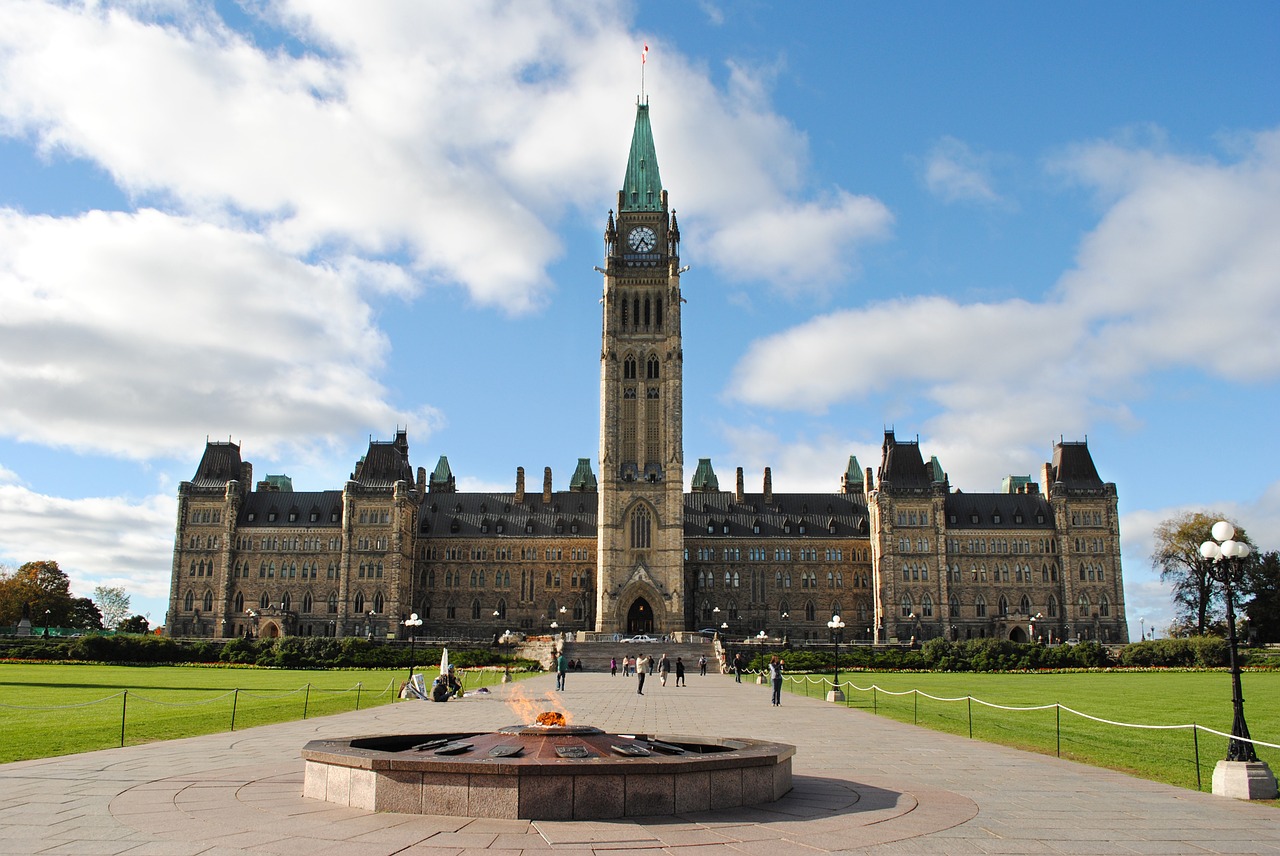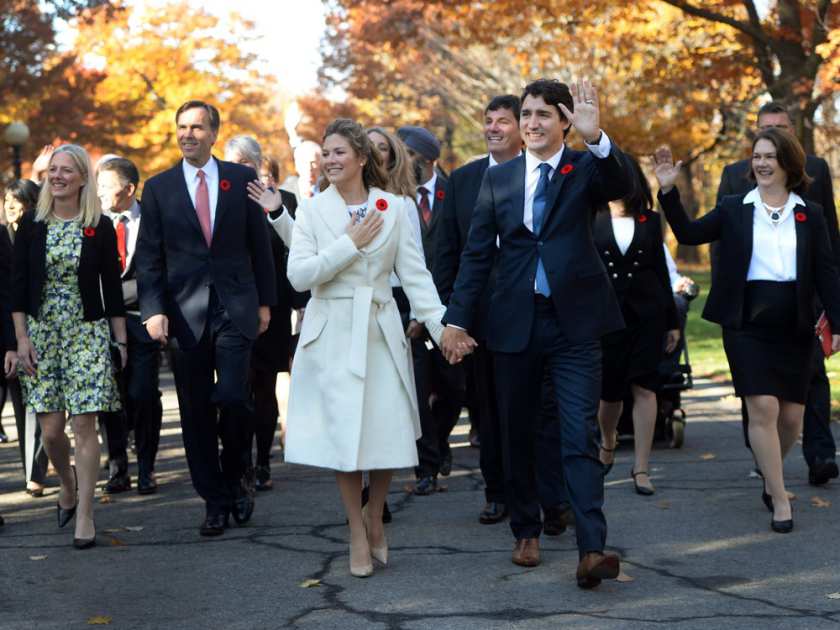Nova Scotia Spearheading Effort to Increase Canada Immigration
Immigration lawyers in Canada Weigh in on this hot topic
In Canada, immigration is a hot topic says Nova Scotia’s Immigration Minister Lena Diab. But that’s nothing that immigration lawyers in Canada and its population didn’t already know. More recently, the issue was brought to light amidst the Syrian refugee crisis and highlighted further throughout elxn42. But instead of pointing out the obvious, Minister Diab is attempting to leverage the topic’s popularity towards real and important changes to Canada’s immigration system.
Most provinces and territories in Canada have implemented a Provincial Nominee Program (PNP) through which they can nominate individuals looking to immigrate to Canada. According to the government of Canada immigration website, “These immigrants must have the skills, education and work experience to contribute to the economy of that province or territory, and must want to live there.”
The only problem with the PNP’s in Canada immigration is that they come with caps. In 2014, the province of Nova Scotia maxed out its cap of 700 and though it was able to raise its cap to 1,350 in 2015, the program was still limited by a full capacity.
During a summit she hosted at Canada’s Museum of Immigration on October 26, Minister Diab was vocal about this issue, proposing to eliminate the cap completely. "I don't see why we need to have it in Nova Scotia. I want flexibility and we want more control over our own program, more than what we've ever had in this province. And I believe we've proved ourselves," she said.
Minister Diab, like many immigration lawyers in Canada, appreciates the importance of immigration. In Canada, immigration increases have been vital to our economic growth. The problem is, not everyone sees the potential and benefit of increased immigration and the fear of immigrants “taking jobs from hard-working Canadians” is still very real.
While Minister Diab’s fight to eliminate PNP caps will help bring to shed more light to the issue and, hopefully, momentum to the cause, immigration lawyers in Canada know there are still many more barriers at bay. Changing legislation to allow more immigrants to come to Canada is only the beginning; making sure they are welcomed and have opportunities when they arrive is something that still needs to be continuously addressed.
According to Ali Duale, a Somalian refugee who came to Canada 18 years ago, immigrants are still often perceived in a negative way. "This message has never been delivered: immigrants are good for us, immigrants create jobs. Immigrants are not lazy people, they are hard-working people. When someone immigrates to Canada, it's a survivor," he said.
While Canadian immigrants may still face negativity, immigration lawyers in Canada are hopeful that an increased awareness of the topic will provide an opportunity to change the conversation.
Major Canadian Immigration Changes on the Horizon
How is our Liberal government starting to transform Canada?
True to their promise of bringing real change, the Trudeau-led government has already announced that many changes will begin to take place with regards to Canada’s immigration and refugee matters. The new government aims “to reopen Canada’s doors to welcome those who want to contribute to our country’s success”. They will be doing so by bringing forth amendments to refugee, citizenship and family reunification policies.
In regards to refugee matters, the Prime Minister listed his top priorities in Minister McCallum’s mandate letter. Among these priorities are the resettlements of 25,000 Syrian refugees, whom the State would sponsor with taxpayers covering the first-year cost of the relocation. In addition, the Liberal-majority government announced that $200 million will be invested to increase refugee processing, as well as sponsorship and settlement services capacity in Canada. They will provide an immediate $100 million to the United Nations High Commission for Refugees to support the critical relief activities in the region. Additional improvements include: restoring the Interim Federal Health Program, ending the appointment practice of individuals without subject matter expertise to the Immigration and Refugee Board (IRB) of Canada, and establishing an “Expert Human Rights Panel” for the determination of designated countries of origin with representatives from international human rights groups.
On citizenship matters, Canadians can expect to see the repealing of certain elements of the highly controversial Bill C-24. In particular, the current government announced its intention to repeal the "second-class citizen" provisions, which would have created a two-tier citizenship. Moreover, they announced the restoration of temporary residence time credit for international students and other temporary residents applying to become Canadian citizens.
Family reunification policies have been facilitated for new immigrants to Canada. To summarize a few, the new government plans to double the budget for family class immigration processing in order to restore processing times to the pre-Harper era. They will also restore the maximum age for dependents to 22 instead of 19 years-old. As such, more parents will be able to bring their children to Canada. Furthermore, they will double the number of new applications allowed each year for parents and grandparents from 5,000 to 10,000 and provide greater access to applicants with Canadian siblings, by granting additional points under the Express Entry system. These announced changes will reunite new spouses entering Canada by granting them immediate permanent residency, instead of imposing a two-year conditional status that puts spouses in vulnerable positions.
Another interesting policy change includes the elimination of visa requirements imposed to Mexicans. Since 2009, the federal government requires Mexican nationals to have a visa when visiting Canada. As a result, this created a "frosty relationship" between the two nations. These new amendments have potential to contribute in restoring an amical relationship between the Canadian and the Mexican governments.
Suffice it to say, a new wave of change in immigration and refugee policies is imminent. Time will tell how they will be executed. For now, these announced changes sound promising for family reunification purposes, citizenship matters and refugees.
One of areas that has not yet been highlighted by Canada’s new government, but definitely requires addressing, includes the urgent need to implement a much-needed mechanism to ensure oversight of the Canada Border Services Agency. Canadian immigration lawyers hope that it is something that the new government will consider with an open mind.
Immigration in Canada Key to Helping Nova Scotia
The Aging Province Needs a Population Boost—An Immigration Law Firm Weighs in
There is a powerful and quantifiable link between immigration to Canada and economic growth—and now, Nova Scotia is vying to experience these benefits for itself. The province’s aging population has academics and officials concerned that, without a significant boom in population growth, Nova Scotia may be headed for economic disaster.
The link between immigration figures, population growth and economic growth is strong in Canada, according to immigration law firms. To illustrate the effect of population growth on economic growth, take the four leading cities for the former in 2013-2014: Calgary, Alberta; Edmonton, Alberta; Saskatoon, Saskatchewan; and Regina, Saskatchewan.
As discussed in a previous post, these four cities also saw the highest economic growth during that time. Edmonton was in the lead, with a 4.9% growth, and nearly 30,000 jobs believed to have been created that year. These cities also saw unemployment rates lower than the national average. Similar growth figures led to strong economic projections in Ottawa, Toronto, Montreal, and Hamilton for 2015 as well.
Nova Scotia, on the other hand, is experiencing an aging population; this is to say, there is a significant demographic shift, leading to more older age cohorts who can no longer work or might soon retire than younger age cohorts who can take over these jobs. This is a very common effect of a slowed population growth. One factor in the reduced growth is typically people having fewer children. The other is immigration. However, Canada’s immigration officials in Ottawa have been creating bottlenecks that are allowing fewer new arrivals to settle in the maritime province than would be considered ideal.
In September, the federal government promised Nova Scotia an additional 300 immigrants through express entry. But experts say this will not be sufficient, and immigration law firms agree that in order to boost the ailing provincial economy, more new migrants will be needed.
With a new Federal Government now in Parliament, and with it, new ministers—especially in Citizenship and Immigration Canada—it is possible that Nova Scotia may finally be able to get its wish to see increased immigration on a scale that can bolster job growth and financial stability for the province.
For assistance with applying for permanent residency through the express entry system, new arrivals in Canada can turn to the aid of an immigration law firm, which offers a variety of services to help people navigate Canada’s immigration channels.
Fixing Canada’s Immigration, Family Reunification Systems
The Challenge Faced by the New Government, as Told by Canadian Immigration Lawyers
In the wake of a majority win for the federal Liberal Party of Canada, Canadian Immigration Lawyers hope that we will see the dawn of a new era for Canadian immigration legislation and policy. On Wednesday, November 4, Justin Trudeau, the new Prime Minister of Canada, appointed his cabinet, including John McCallum as the new Immigration Minister. The task will fall on McCallum to resettle 25,000 Syrian refugees by the end of the year, though this is not the only mission the Liberals have promised which Canadian immigration lawyers are eager to see completed. There is also the issue of improving the family reunification system, which will be no small feat.
The Family Reunification Issue
Immigrants, refugees, and other newcomers to Canada have had a difficult time reuniting with their family for the last several years. In fact, the processing time for an application to sponsor a family member was 31 months—more than two and a half years. The CCR (Canadian Council for Refugees) had urged Canada’s immigration officials during this time to alleviate the issue, citing the danger posed to family members stranded overseas. Oftentimes, children, spouses, and other family members were left behind in dangerous conditions, such as poverty, war, or persecution. The CCR also pointed out that these tremendous waiting periods flew in the face of Canada’s signature on the 1989 UN Convention on the Rights of the Child, which makes us bound by international law to ensure that children’s rights are being protected. A Canadian immigration lawyer would argue that swift reunion between children at risk overseas and their parents here in Canada falls under those terms.
The Liberal Plan
According to a post on the Liberal Party of Canada’s website during the election campaign, the Liberal government plans to give a serious boost to the family reunification system as part of a larger overhaul of the country’s “broken” immigration system. The proposed changes include:
- Increasing sponsorship applications for parents and grandparents to 10,000/year
- Raising maximum age of dependents from 19 to 22
- Immediate permanent residency for spouses
- Additional Express Entry points for siblings
These changes to Canada’s immigration system are intended to help keep families together when they make the choice to come to our country. The success of this promise remains to be seen, as there may be many unexpected roadblocks along the way. However, it is the hope of many families and the Canadian immigration lawyers who have fought to help them keep their families together that a bright new age for family reunification will soon begin.
Russian Spies and Canada’s Immigration Dilemma
Citizenship Lawyers and Officials Butt Heads over Fate of Sons Presumed Innocent in Spy Bust
The phrase “Russian spies” is not something you hear in everyday conversation—unless you’re studying Cold War-era history or reading a John le Carré novel. But for brothers Alexander and Timothy Vavilov, who are 21 and 25 years old respectively, this phrase has become central to their predicament, ever since they were stripped of their Canadian citizenship. Now, Canada immigration officials won’t grant them the citizenship that they believe is their right by birth. So what did the Vavilov brothers do to be stripped of their citizenship?
Officially, nothing, except for being born to the wrong parents. In a case that is complex and multi-faceted—the kind that citizenship lawyers and legislators may scratch their heads over for a while yet—the two boys, who were born on Canadian soil, have been denied citizenship under their amended surnames since their parents were discovered to be Russian spies in 2010.
The Sins of the Parents
At some point prior to 1990, when their son Timothy was born on Canadian soil, Andrey Berzukov and Elena Vavilova stole the identities of Donald Heathfield and Tracey Ann Foley, Canadians who had died as infants. In 1995, the family moved to France, and then to Boston in 1999, but maintained Canadian citizenship and frequently returned to the country. In 2010, the FBI arrested 10 Russian agents, including Vavilova and Berzukov, and deported them to Russia in a spy swap. There is no evidence that the couple were spying on Canada—but the stolen identities alone are a serious offence.
The Fates of the Sons
Technically, under Canada’s immigration and citizenship laws, any person born in Canada is automatically granted in citizenship, regardless of the status of their parents. There is a caveat, however. This does not extend to the children of diplomatic or consular officers, employees of foreign governments, or any other persons with specialized diplomatic privileges. Technically, by law, the Vavilov brothers would not have a legal right to citizenship.
The Citizenship Lawyer’s Dilemma
The complicated ethical dilemma to this case is that, by all accounts, the children of the two spies did not know that their parents were living under assumed identities. Despite unproven allegations that Timothy, the elder son, was recruited into the espionage mission his parents shared, they have claimed plausible deniability, and the citizenship lawyer representing the boys has insisted that they are innocent victims in this entire ordeal. And so this question is raised: is it more important to uphold the law, which clearly denies the boys any citizenship rights in the country that they have come to call home, even if they have not personally committed any offenses, or to make a carefully considered exception for the victims of a crime their parents committed against their knowledge?
This is not a question that those invested in Canada’s immigration issues will likely answer soon.





